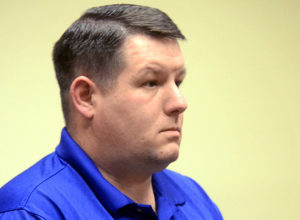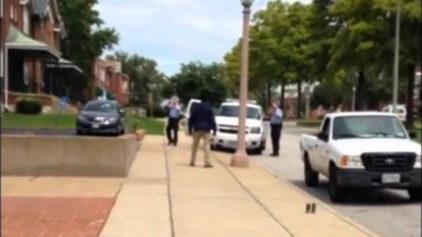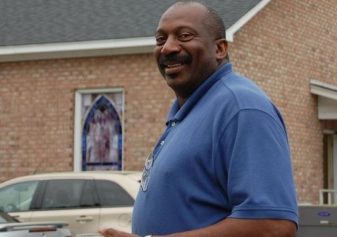
The indictment is one of three in 2014 for white officers in the shootings of unarmed Black men in South Carolina, according to The Associated Press.
The indictment of Richard Combs, the former chief and sole officer in Eutawville, a small town of about 300 residents 50 miles southeast of Columbia, S.C., was released on Thursday. One third of the residents in Eutawville are Black.
Combs shot and killed Bernard Bailey, 54, in May 2011.
If convicted, Combs will be facing 30 years to life in prison.
Combs was already facing up to 10 years after a grand jury indicted him in August 2013, on a misconduct in office charge for the shooting.
Combs’ attorney, John O’Leary, is accusing prosecutors of capitalizing off the national attention surrounding similar cases against white police officers like in Ferguson and New York City.
“He’s trying to make it racial because his timing is perfect,” O’Leary told The AP. “He’s got all the national issues going on, so they want to drag him in and say, look what a great community we are here, because we’re going to put a police officer who was doing his job in jail for 30 years. That’s wrong. That’s completely wrong.”
However, the prosecutor, David Pascoe, said that even before a judge threw out Combs’ “stand your ground” self-defense claim last month, he’d already planned on seeking a murder charge, The AP said.
Indicting police officers is rare and difficult because they have more latitude than average citizens to use deadly force to defend themselves or make an arrest.
“The reality is that the police often use excessive force, including sometimes deadly, and are rarely held criminally or civilly liable–and most police departments have no meaningful internal or external accountability mechanisms,” Anthony Rothert, legal director of the American Civil Liberties Union of Missouri Foundation, told The Washington Post in reference to the Michael Brown shooting.
The South Carolina version of the “stand your ground” law, the Protection of Persons and Property Act, says there is no duty to retreat if the person is in a place they have the right to be (home, occupied vehicle or place of business), is not engaged in unlawful activity, and the use of deadly force is necessary to prevent death, bodily injury or the commission of a violent crime.
The judge that threw out Combs’ self defense claim ruled that he should have let Bailey leave, The AP said.
Bailey’s daughter called her father for help after Combs gave her a ticket for a broken taillight. The two men argued, but eventually went their own way. Combs then got an arrest warrant for Bailey for obstruction. When Bailey came to Town Hall a few days later to dispute his daughter’s ticket, Combs attempted to arrest him.
According to prosecutors, Bailey went back to his truck and Combs reached into the vehicle to prevent him from leaving. The two fought as Combs tried to turn off the ignition and then the former chief shot Bailey twice in the chest.
Combs claims that he feared for his life if Bailey had tried to drive away while he was tangled in the steering wheel.
Combs’ bail was set at $150,000, according to the AP. He was placed on leave after the shooting, and the town let him go six months after the shooting.
Bailey’s family was given $400,000 in a wrongful death settlement with Eutawville in August.


